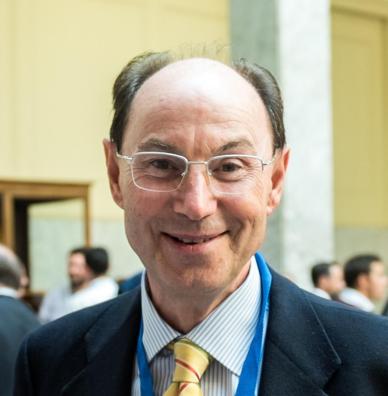

Rafael Vázquez (Atecyr): “You need a universal vision that cuts across the sector”
In this interview, Rafael Vázquez, President of the Spanish Technical Association of Climate and Cooling, highlights the importance of knowing the state of the industry at all times, the latest technologies and software available. And he assures that Spain offers broad, high quality training opportunities in this specialty.
What are the main topics in training in climate control and cooling that should be strengthened in Spain?
The schools of engineering at the universities teach fundamentals of the various disciplines along with a capacity for abstract thinking, all of which are needed as the foundation for training throughout our entire career. It's important to know the state of the art at all times, the latest technologies, the software tools available, and to be able to have a universal and transverse vision.
Spain today has extensive regulations following the European directives on safety, healthy installations, energy efficiency, renewable energies, lowering GEI emissions, and in our case, coolant gases, methane, and of course, CO2.
In short, we cannot forget sustainability, understood as satisfying current energy resources without compromising the future generations' ability to satisfy theirs. The Atecyr logo has three arrows, one of which is green; that's our commitment to sustainability.
How does Spain's level of training in this specialty compare to the rest of Europe?
Atecyr belongs to the Federation of European Heating, Ventilation and Air Conditioning Associations (REHVA), currently made up of 27 countries. I can assure you that the training concerns I mentioned earlier are present in each different association in the federation. We also belong to the Federation of Ibero-American Associations of Air Conditioning and Cooling, FAIAR, where courses are taught on those subjects.
At universities, there is an regulated program in the energy areas that lets Erasmus students from Europe and Spain accredit their coursework, not to mention the added importance of our young people getting along. Spain has an extensive, high-quality offer.
What other master's and courses for professional are there on the market?
The educational opportunities in our sector are extensive. First, universities offer specific Master's programs in Energies and the Environment all over the country. Secondly, the associations, foundations, and institutions related to Climate Control and Cooling, as well as the ones committed to renewable energies, offer highly specific courses for professionals across the sector.
At Atecyr's foundation, FUNDATECYR, we teach short monograph courses as well as expert courses of 160/250 hours, with elaborate curricula and outstanding teachers in their discipline, university instructors, and professionals from the sector. This year he have scheduled the 9th edition of HVAC Experts, the 7th edition of Cooling Experts, and the 1st edition of Energy Rehabilitation for Buildings, in consonance with the commitments to the UE's Wave Renovation and the New Green Deal.
Due to COVID19-related problems, they are taught online in real time to achieve greater student participation, and we hope to return to the classrooms after the summer. All of them are subsidized by the Ministry of Employment and Social Security, through the State Foundation for On the Job Training, which helps companies finance training through their payments into Social Security.
How important is it for the sector to have transverse training opportunities?
We need to intensify the transverse training of professionals in Architecture and Engineering in matters of: Circular Economy, Life cycles of buildings and facilities, Calculating the carbon footprint, Local Energy Communities, Environmental Seals for Constructions, Smart Readiness Indicators, and SRI, not to mention the recent changes in legislation on Energy Certifications for Buildings...
¿Qué importancia tiene en el sector la oferta formativa transversal?
Hemos de intensificar la oferta formativa transversal de los profesionales de la Arquitectura e Ingeniería en los nuevos temas de: Economía Circular, Ciclos de Vida de edificios e instalaciones, Cálculo de la huella de Carbono, Comunidades Energéticas Locales, Sellos Medioambientales de Edificación, Smart Readiness Indicators, y SRI, sin olvidar los cambios legislativos recientes en la Certicaciones Energéticas de los Edificios…





